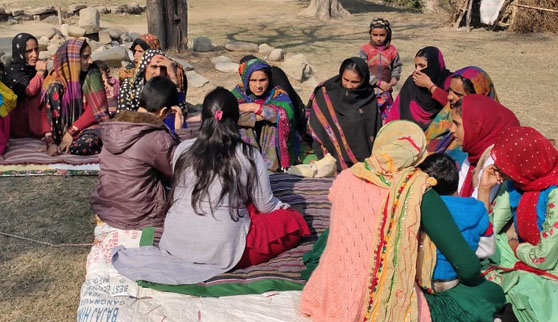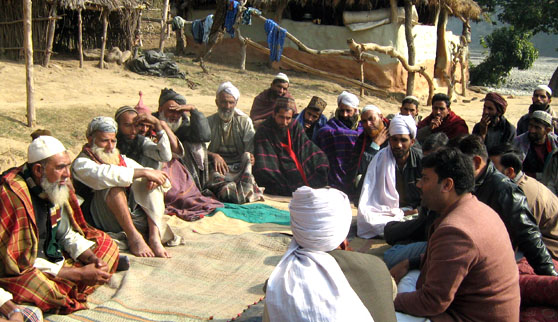
Van Gujjars communities are largely egalitarian; they are supported through ties of kinship and friendship, and undergirded by values of public honour and respect. Socially, the community is composed of deras, the mobile home, and gotras, different clans. Marriages are key in fortifying relations between different gotras. Cross-cousin marriages are preferably arranged whereby the families will later exchange two matured girls. However, young women may avoid their marital arrangements by initiating divorce.


Inter community disputes and issues, such as divorce, are resolved through the community’s panchayat form of governance. The panchayat is a gathering of predominantly male Van Gujjars who discuss, negotiate and reach a consensual resolution on a matter. Whilst women do not openly partake in the panchayat they may communicate their opinions to male associates who relay the panchayat details back to them.
Within the Van Gujjar community women are perceptibly powerful, being both socially influential and actively partaking in their livelihoods. It is the women who primarily arrange marriages and elder women are considered to be very wise. Women travel between khols, dwelling areas, and host both men and women within the home. They may own buffalo, exercise control of the family’s purse and have rights to inheritance. In the maintenance of their livelihoods, both men and women partake in buffalo husbandry.


Religiously, the Van Gujjars’ practices either combine Sunni Islam with Sufism and popular Hinduism or follow more mainstream Islam. As a Van Gujjar Feroz states, ‘four things are forbidden in our religion: gambling, drinking, theft and the selling of girls’ (taken from Gooch, 1998: 302).